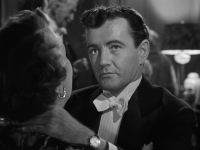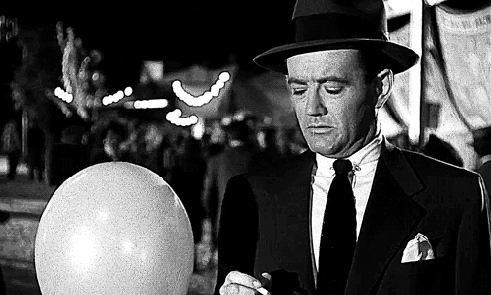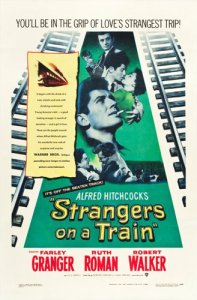Strangers on a Train Film Review
Stop me if you’ve heard this before, but another September 30th has landed. They keep coming and all the faster. For those unaware, ever since I became a parent, the realization of it grows acutely. The eve of what I refer to as “The Slide.” The cosmic phenomenon of the beginning of the end for whatever year you or I happen to be living through. Where the space-time continuum accelerates to the point the year’s suddenly over. All that happens between now and the end of the Rose Parade just a blur. A fleeting memory.
October 1st… January 2nd.
So, the blogger otherwise known as the Scientist Gone Wordy and I return to the penultimate duo post book-slash-movie review as we start our short autumnal run in this series. And we’ll not come this way again as the two of us will dispatch the last reader selection of 2016. That being another debut novel by an author initially successful for her originally and craft, then unappreciated in the United States for much of her career. Patricia Highsmith the mistress of stark poetic prose. Her Strangers on a Train famously adapted for an acclaimed Alfred Hitchcock film.
Kudos to Wordy reader, Dr Musacha, for suggesting it.
A stellar selection and pairing as each mastered their respective realms, intersecting shortly after her novel published1 in 1950. Rachel will scrutinize the psychological thriller by Highsmith about two men who meet and somehow come to “trade” on something only the most cold-bloodedly insane would agree to. I’ll review the first Alfred Hitchcock film we’ve ever done, and one of the most studied, besides. His American production having broke ground in cinema and in movie viewers heads.
The wordy one’s book review can be found here:
Strangers on a Train by Patricia Highsmith
A brief synopsis of the film(s): Guy Haines is an amateur tennis player who wants two things: to marry Anne Morton, the daughter of a senator, and pursue a political career. For this, he needs to divorce his future-past wife, Miriam — who’s currently pregnant with another man’s child, seeking money, and oh, not interested in breaking up the union. By chance, he meets on a train one Bruno Anthony.
Bruno believes he has the perfect scenario to rid himself of his hated wealthy father, and in Guy he’s found the ideal partner to pull it off. His plan calls for two strangers to kill the other’s intended. “Swap murders.” Guy dismisses it all out of hand but Bruno does his half of the ‘bargain’ and disposes of Miriam. When Guy balks, Bruno makes it quite clear he’ll implicate him in her murder if he doesn’t get rid of his father.
How Guy gets out of the predicament the gist of the plot.
[spoiler warning: some key elements of the films could be revealed in this review]
“I still think it would be wonderful to have a man love you so much he’d kill for you.”
As a kid, I remember coming in from playing whatever outside one day and plopping in front of the old Admiral television my grandmother had in her living room. Being elementary school age, with little to do during the summer but amuse me…have I not mentioned I was mi abuelita‘s favorite…watching anything I wanted was a given. Hence, when I twisted the TV tuner to find some old man crawling perilously beneath an out of control carousel, I was immediately transfixed.
Till the crazy thing crashed violently and ruined going on such rides for years after, that is.

Without a doubt, even after you learn of his on- and off-screen interactions with actors, it’s pretty clear the career of Alfred Hitchcock revolutionized the film industry. Being brilliant and visionary tends to do that. I remember attending a screening of a very under-appreciated film five years ago that’s finally gained traction for its director, Sorcerer, where William Friedkin said to those there, “If you want to become a filmmaker, ya know just watch Alfred Hitchcock’s films. That’s all you need to do.”2
Would take years before I came back to it, including reading Highsmith for the first time, but I daresay you’d only need to point to Strangers on a Train to see how true Friedkin’s words were on the subject. The film represented the continuing impact this transposed Brit had commercially and artistically on cinema at the halfway point of the century. Even with the changes to the author’s tale3, the film respected Highsmith’s homosexual subtext as well as the belief we are all corruptible.
Yet, in keeping with director’s “wrong man” context he’d become well known for.

In other words, the film registers on multiple levels, easily jumping from suspense thriller to drama, even film noir with its use of shadows and a mood of pessimism that permeates the screen. Visually, Strangers… remains both a striking looking feature and a metaphorical stunner. Something Raymond Chandler famously argued against as its screenwriter4, as “…Hitchcock was more interested in the visual development and formal structure of the movie laid out in the treatment.” (IMDB)
Only have to look at how the director begins the film to see how’s it going to play out along the optic nerve:
The setup a near-wordless sequence, and enhanced by Dimitri Tiomkin‘s distinctive score, on who’s who, and what, and the eventual meeting they’re undoubtedly headed towards. The contrast presented in their manner and accoutrements its own form of inevitable collision. Even the camera view most moviegoers are long accustomed, from the front-of-the-train, immediately thrown askew as the engine veers toward another path hints at it. That is to say, paralleling the storyline by “crisscrossing” the tracks.
It’s a stylish opening that builds tension from there throughout. Nevertheless, the duality of Highsmith’s scenario remains the centerpiece of it all. In fact, it’s given the sort of Hollywood treatment her work richly deserved, but apparently to be long-delayed after this5. Many of Hitchcock’s productions rank high in a number of “best” lists, and with good reason, too, and this deservedly among them. More than a few gathered acting nominations in his films, making Strangers on a Train also a rarity.

That being because of Robert Walker‘s remarkable performance in it; spoken in the same light as the director when it comes to this. Hence, the most glaring for not garnering either a lead or supporting nod. One of the most charming movie cads ever, and by an actor not known for villainous roles6. He’s mesmerizing whenever onscreen, and the director’s “First and Only” choice for Bruno Anthony. Likely, one of the first “stalkers” presented on film, and cleverly seductive enough to get past movie censors.
“Oh, Daddy doesn’t mind a little scandal. He’s a senator.”
 The pairing with the late-Farley Granger, as the exploitable tennis bum, and particularly Walker were some of unsung elements back then of Strangers on a Train, now reaping accolades almost as much as the film’s creative and striking visuals. Of course, this being a Hitchcock film, you had some marvelous supporting characters reinforcing the goings on. Two of which come to mind, Guy’s love interest Anne (Ruth Roman) and Marion Lorne as Bruno’s mother. The latter stealing scenes, the former the director’s ire7.
The pairing with the late-Farley Granger, as the exploitable tennis bum, and particularly Walker were some of unsung elements back then of Strangers on a Train, now reaping accolades almost as much as the film’s creative and striking visuals. Of course, this being a Hitchcock film, you had some marvelous supporting characters reinforcing the goings on. Two of which come to mind, Guy’s love interest Anne (Ruth Roman) and Marion Lorne as Bruno’s mother. The latter stealing scenes, the former the director’s ire7.
Their lone scene together shouldn’t work as well, yet memorable for how the women played it.
All augmented by the work of cinematographer Robert Burks in his first of a long collaboration with Alfred Hitchcock. Indeed, the show and tell the pair orchestrated recognized with 1951’s Best Cinematography (black and white division, color film had their own category by now) and the director’s first DGA nominations. Neither won, but it matters not as the devious splendor of this book adaptation could care less what anybody thought. About as much as Bruno did with that bratty kid’s balloon.

While today’s ticket buyers may find Strangers on a Train a tad old fashion, what with its monochrome and need to elaborately hide the appearance of homosexuality and the allure of Bruno’s character (as well as play him as the villain). Yet, we root for the bad guy, nonetheless. Hell, we’re pulling for him to reach Guy’s incriminating cigarette lighter from the sewer as we head toward the finale, for Chrissakes. Hitchcock got his audience to do this decades before Thomas Harris and Jonathan Demme ever did with Hannibal Lecter.
“Don’t worry, I’m not going to shoot you, Mr. Haines. It might disturb Mother.”
Quite a feat to be strangely more invested, on the film’s 65th anniversary, with Guy and Bruno than we’re ever with the tennis player’s beautifully brunette betrothed. The film would be a stand out by the story’s premise alone, but is now a study for how filmmakers can turn an audience, visually and emotionally, into doing what they thought they’d never do as upstanding people simply taking in a movie. No wonder film schools and students continue to pick this apart. Expressed another way, Patricia Highsmith was right.
Parallel Post Series
- The Three Musketeers
- 52 Pick-Up
- Life of Pi
- Deliverance
- The Laughing Policeman
- The Joy Luck Club
- Like Water For Chocolate
- Edge of Tomorrow
- – 2015 posts
- – 2014 posts
- – 2013 posts
- – 2012 posts
- – 2011 posts
- – 2010 posts
- “Alfred Hitchcock bought the rights to the original novel anonymously to keep the price down, and got them for just $7,500.” (IMDB) Which Highsmith later learned and “…was quite annoyed when she later discovered who bought the rights for such a small amount.” (Wikipedia) ↩
- The rest of the quote (found here) being: “They’re not all the same quality, of course. Some are great, some are just almost great, but it’s a textbook for filmmakers. Just watch the work of a master like that you’ll get the idea pretty quickly.” ↩
- Guy not a tennis player, but a promising architect in the novel; Bruno a rather charming psychopath in the film than the physically repugnant alcoholic in Highsmith’s world. The story kept between Washington, D.C. and New York rather than sprawling across the Southwest to Florida; the merry-go-round climax lifted from Edmund Crispin’s The Moving Toyshop novel. And of course, Guy doesn’t follow through on his side of the bargain under Hitchcock. ↩
- Chandler credited as the main scriptwriter but thought the story “silly”, so the screenplay almost completely written by Czenzi Ormonde (credited as second author) who was suggested to Hitchcock by Ben Hecht. ↩
- Her Ripley Novels and other works gained popularity in movie and television after her death in 1995, though European productions followed through sooner after Hitchcock’s. ↩
- Walker would die months after filming from an allergic drug reaction, this being his last feature film role. ↩
- The actress hoisted on to the production by the studio. “According to Farley Granger, Alfred Hitchcock hated Ruth Roman treated her very harshly and criticized her often in front of everyone. “He had to have one person in each film he could harass,” Granger noted.” (IMDB) ↩


23 Responses to “Strangers on a Train Film Review”
Great movie, well worth your enthusiasm. Small bit of trivia – the merry-go-round finale is taken from Edmund Crispin’s novel “The Moving Toyshop” without on-screen credit through Hitchcock had bought the rights.
LikeLiked by 1 person
When reading Highsmith’s novel, I kept watching out for this scene, which never came, of course. Thanks, Sergio. 🙂
LikeLike
I watched this for a film class and Bruno just creeped me out, great film!
LikeLiked by 1 person
He is somethin’, alright. Thanks, Bex. 🙂
LikeLiked by 1 person
Watch that sequence with the carousel and then watch the RV sequence in The Lost World Jurassic Park. Spielberg learned from the best.
LikeLiked by 1 person
Okay, likely good as any for me to return that sequel which disappointed so bitterly. 😉
Thanks, Richard. 🙂
LikeLike
The older you get, the faster time goes. Kind of a cruel twist.
I first saw Strangers on a Train a couple years ago and it blew me away. Hitchcock films never get old for me. Strangers is one of his best.
Arlee Bird
Tossing It Out
LikeLiked by 1 person
It is a cruel twist, alright.
Indeed, Arlee. Certainly, this is one of his best. Thanks, my friend. 🙂
LikeLike
I really should check this one out soon Michael, I’m sure it’s as great as you and other people have claimed it to be.
LikeLiked by 1 person
It’s a great one, for sure. Thanks, Ruth. 🙂
LikeLiked by 1 person
Hi, Michael:
Great to see the opening sequence used so well. Also the clip where Bruno pops the annoying kid’s balloon!
Also like the sequence where everyone in the bleachers are watching Guy’s tennis ball volley over the next. Except Bruno Anthony.
Hitch was a true visual master!
LikeLiked by 1 person
That’s also a great scene, alright. Truly a visual master. Thanks, Kevin.
LikeLike
We did this for our Book, Dinner and Movie night here at the library. We read the book, discussed it, had dinner, watched the movie and had a great time comparing and contrasting. While the group found the book disturbing, underlying nuances, and the physiological style of writing. They felt the movie was very little like the book, they laughed out loud at the movie and loved it. Hitchcock was a master! We had a great time with this.
LikeLiked by 2 people
Sounds like a great one to have such Book, Dinner, and Movie night around, Bev. 🙂
Thanks for joining in on this, my friend.
LikeLike
[…] Michael reviewed the classic Hitchcock Strangers On A Train… […]
LikeLiked by 1 person
Excellent job with this article. I’m still surprised that Strangers on a Train isn’t even more well-known as one of Hitchcock’s greatest films. It’s so tense and includes one of the great performances in any of his movies from Robert Walker.
LikeLiked by 1 person
Thank you very kindly, Dan. Yeah, this one deserves to be heralded more than it is for the highlights you mention alone. 🙂
LikeLike
One of my favorite Hitchcock films, Michael. Very thorough review. I love the carousel sequence the best.
LikeLiked by 1 person
That is indeed one heck of a sequence, and film. Thanks, Cindy. 🙂
LikeLiked by 1 person
[…] Strangers on a Train […]
LikeLike
Yet another one I still haven’t had a chance to watch yet. Well, we’ve both talked about how busy we’ve been lately. Anyway, hoping to pick this one up at the same time as the Sentinel film. I have pretty high hopes for this one as I’m thinking I’ll enjoy it more than the book. As you know the book just didn’t work well for me. Film sounds great, though, and I always enjoy Hitchcock. Can’t wait!
LikeLiked by 1 person
I think you’ll enjoy the film more, too. It does offer more humor in that way of Hitchcock’s. 🙂
LikeLike
[…] Strangers on a Train […]
LikeLike